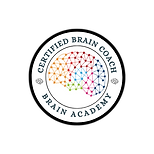The Happiness Trap & Brain Injury
- Luke Bohnenberger
- Sep 10, 2025
- 3 min read
What if Happiness Isn’t the Goal?
For a long time after my traumatic brain injury I thought happiness was the goal and I believed that if I could just “get back to normal,” I would reach that goal. I kept trying to out-think, out-run and out-tough my emotions, but the more I fought them, the heavier they got. Then I picked up The Happiness Trap by Russ Harris and it felt like someone finally put into words what I had been feeling all along.
This book doesn't offer quick fixes or toxic positivity like many self-help books claim to have. Instead it introduced me to Acceptance and Commitment Therapy (ACT), a practical, science-backed approach to working with your thoughts and emotions, instead of fighting against them.
Why I Connected With This Book
After my brain injury in 2015 I was overwhelmed by emotions both from the trauma itself and the injury. Frustration, sadness, even guilt and they weren’t just “feelings.” They were waves that crashed over me daily. No one prepared me for how emotionally exhausting recovery would be. Reading The Happiness Trap helped me realize that I wasn’t broken for feeling that way, brain injury or not these are normal human experiences.
What hit hardest was this: The goal isn't to eliminate pain. The goal is to stop struggling with it. That idea alone changed how I view my recovery and it’s one I now carry into the coaching work I do with other survivors.
Understanding ACT: A Better Way to Cope
ACT isn’t about changing your mindset, it’s about getting clear on what matters and making space for life’s full experience, both good and bad.
Here are a few ACT tools that helped me (and that I now share with clients):
Diffusion: You Are Not Your Thoughts
Our brains love to tell stories, especially after trauma. ACT teaches you to observe those thoughts without getting tangled in them. Instead of, “I’m a failure,” you learn to say, “I’m noticing the thought that I’m a failure.” That tiny shift creates space between you and the thought and that space is where healing begins.
Acceptance: Emotions Aren’t Enemies
This was the hardest part for me and now my favorite thing to coach. I thought I needed to conquer my sadness. ACT helped me see that emotions are like weather, they come and go. My job isn’t to control the storm, it’s to learn how to sail through it.
For brain injury survivors especially, acceptance doesn’t mean giving up. It means dropping the war with yourself.
Values: Your Inner Compass
ACT encourages us to clarify what really matters, what gives our life meaning and to build actions around that.
After my injury, I had to redefine what success, strength and purpose looked like. Now, my values guide every decision I make, both as a survivor and as a coach.
Why ACT Is Powerful for Survivors
Brain injury changes how you think, feel and respond to the world, but ACT offers something most recovery programs don’t: rewiring for emotional flexibility. So instead of pushing through or pretending everything is okay, ACT helps you stay grounded in who you are even when life gets hard. It gives you tools to:
Navigate intrusive thoughts
Accept emotions without judgment
Rebuild identity around purpose, not perfection
And the best part? It works with your neurobiology. ACT supports the kind of emotional regulation and meaning-making that helps your brain heal. The Happiness Trap didn’t just teach me how to think differently. It helped me feel less alone. It reminded me that chasing happiness is exhausting and that peace often comes from acceptance, not achievement.
For any survivor or caregiver reading this, I highly recommend this book. If you’ve ever felt overwhelmed by emotions, trapped by thoughts or unsure how to move forward this is a powerful place to start.
To Russ Harris: thank you. Your work gave me tools to use through my recovery and ones I now pass on to others who are walking a similar path. Stay grounded. Stay kind to yourself. And remember, you don’t have to escape your emotions you just have to stop letting them run the show.
— Luke Bohnenberger
TBI Survivor | Brain Coach | Founder of LukeSpeaks









Comments